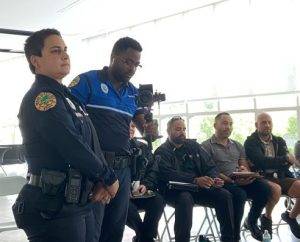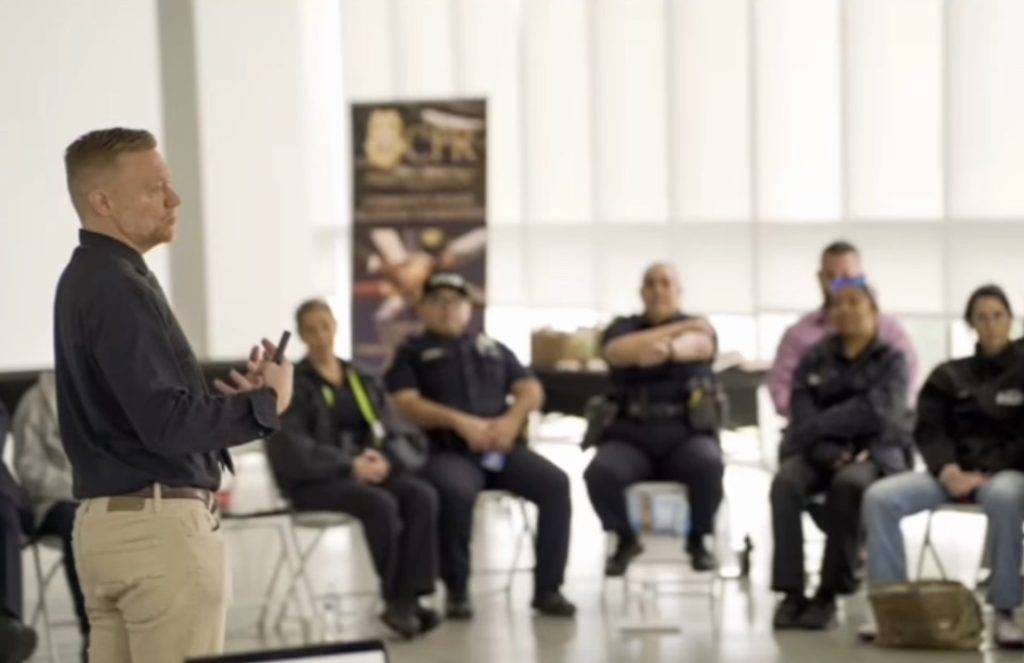Our education team recently led a training called, “Boys Don’t Cry” to first responders across South Florida. Police officers, fire fighters, victim advocates, and special guests representing government agencies across Broward and Miami-Dade County joined our team for an in-depth inquiry into masculinity.
First responders were led through a series of questions asking them to reflect on their own experiences with masculinity in the workplace and home life. “As a woman in a male dominated field, it gets exhausting to have to constantly prove yourself.” One of the female police officers shared her frustrations about working in a hyper masculine environment and mentioned how she would shield herself from conversations with her male colleagues at times. Another police officer shared that he didn’t realize until he was asked to reflect on masculinity that he used sports to prove himself as a man, athletics was his way to show off his manhood because he could be rough and tough.
The conversations led to deeper inquiry and self-discovery when facilitators brought up mass shootings and the correlation with masculinity. According to the Violence Project, 98% of mass shooters over the last 50 years have been men.
Teenage boys who were the gunmen in different mass shootings were asked to write letters about their experiences for an article in the Washington Post. Our facilitators read excerpts as part of the training. The letters detailed being taunted, belittled, and dismissed by girls and wanting to harm girls for not taking them seriously. One of the shooters wrote: “I will destroy all women because I can never have them. I will make them all suffer for rejecting me.” Hearing the stories first hand about teenage boys feeling powerful and able to assert their dominance gave the participants pause for reflection.
One of the first responders spoke about the impact and incredible concern for the vitriol in the letters had on them not as a police officer but as a parent to young boys. The firefighter realized that conversations around manhood and emotions were imperative to the safety and well-being of everyone. Some of the participants pointed out how boys weren’t feeling heard in their communities. Throughout this conversation, various first responders shared their own breakthroughs about themselves as men. “I learned that it’s okay to have feelings and have emotions.
Performing masculinity was not on the forefront of one of the participants until this training session when they shared that they realized how much was expected of them as a man. The conversations continued around the societal consequences for not following gender expectations especially when our young adult guest speaker shared about what it meant for him to be transgender without a positive role model for healthy masculinity.
As mass shootings continue to increase in the United States of America, YES Institute asks what there is for each of us to do to prevent violence for our young people by examining the role of gender and orientation. We ask our participants how we can shift the way we conceptualize masculinity and its expectations on our youth.
How can we ensure all young people feel included and safe? Join us for an interactive session to discuss growing awareness, and learn practical tools, best practices, and strategies for creating caring communities and school environments that welcome all youth experiences.
Join us for our Deciphering Gender & Orientation courseSaturday, April 1, 2023 at 9am ET delivered via zoom.

